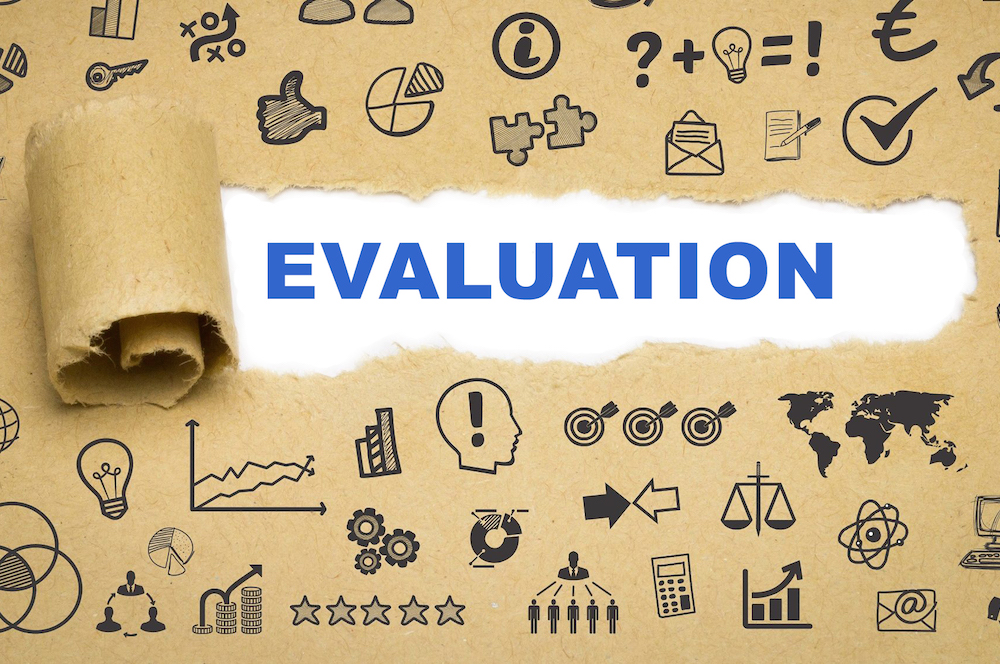
17 Feb Organizational Readiness through an Evaluation Lens by Tom Assel, GPC
In a previous post, Julie Alsup, GPC looked at competency 2.2 through a budget lens. For this post, I’ll look at an agency’s readiness to seek project funding through an evaluation lens. Evaluation is crucial to project sustainability, a key factor in grant requests. Carefully considering project evaluation can help an agency obtain grant dollars for a project.
First, let’s define project. Merriam-Webster defines project as “a specific plan or design.” When I think of a project, I think about efforts for a specific purpose. The term program often fits that description as well. Projects tend to be timebound, with specific dates for beginning and completion. Projects also have a specific focus, like a food pantry, onsite mental healthcare at a school, or upgrading technology. All projects should align with your agency’s mission. If you’re considering applying to a foundation (or other funding partner type) for project support, the project’s purpose should align with the funder’s mission as well.
Why might a funder want to support an agency’s project but not the agency in general? The funder’s mission is the key, as your agency may have some programs that don’t fit a funder’s focus and some that do. The funder’s mission (and geographical constraints) should be your primary focus when considering whether to apply. For example, a social service agency may have a food pantry program but may also have a program focusing on training for and securing employment. Funder ABC might focus on programs that directly address food security for children. The agency’s food pantry program might be a good fit for a grant from ABC, but ABC might not want to support employment services. This may make a request for project support a better option than a request for agency support. Your best bet is to contact somebody at the foundation to discuss your agency and the project.
Even if we have a well-defined project and a well-aligned potential funding partner, we still need strong project evaluation methods. Evaluation is what tells you your project is having the intended impact. What makes for strong evaluation methods? The evaluation should tie as directly as possible to the project’s activities. The evaluation should focus on the activities’ impact and not just the numbers of participants. We want to evaluate outcomes (the changes in attitudes, knowledge, behaviors, or opinions) over outputs (the number of participants). This can be quite challenging for projects that are heavy on direct services, such as a food pantry. How do we measure the effectiveness of something like feeding the hungry? Answering this or similar questions requires research. What are best evaluation practices for a service? There is more research for some service types than others. Fortunately, as the human services sector increasingly emphasizes evidence-based practices, more research is being published each year about service impact and evaluation.
Funders tend to scrutinize evaluation plans. This is largely because programs with strong, well-planned evaluation methods are more sustainable than programs that take their impact for granted. Evaluation impacts both financial and operational sustainability. It is easier to raise funds for a demonstrably impactful program than a program with vaguely defined notions of success. It is also easier for agency leadership to justify the program’s continuance if the program has a track record of quantifiable success. Funders like to fund programs that aren’t going to be cancelled. A strong evaluation plan allays those concerns.
Nonprofits often do work that others won’t. They can’t do that without funding. Project funding is a great way for agencies to partner with funders who agencies might not normally consider. To maximize chances of project funding, projects must be high quality, which means agencies must know if projects are having the intended impact. This requires strong evaluation plans. Such plans give funders confidence in the project’s (or program’s) sustainability, making it easier to fund the project so you can make a greater difference in the lives of the people you serve.
Competency 2.2: Assess organizations’ readiness to obtain funding to implement specific projects
